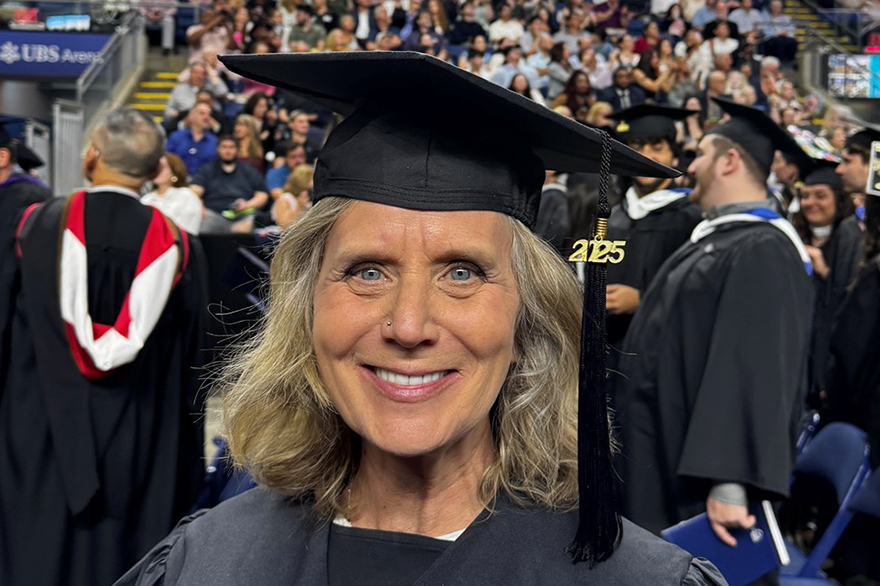
Think youre too old to go back to school? Think again! Here are just a few ways to expand your horizons, share your knowledgeand get social!Tuition free college coursesAt the Western Connecticut State University graduation ceremony this past May, Andrea McLaughlin, 64, crossed the stage with a triumphant grin, accepting her hard-earned Master of Fine Arts diploma.Only two years earlier, Andrea had boldly enrolled, inspired by a little-known perk: Connecticut residents 62 and older can attend classes tuition-free at several state universities, including a network of 12 community technical colleges.Other states like California, Delaware, Louisiana, and New Jersey have similar programs, inviting seniors to pursue new passions or finish old dreams without worrying about tuition costs.Elsewhere, many states open their classroom doors to older adults as auditors, creating a vibrant mix of ages and experiencesproof that its never too late to go back to school.The senior waiver program was the overwhelming reason I returned to school to get my MFA.
It made the program very affordable, saving me over $30,000.I was welcomed by professors and fellow students, and I felt that my life experiences added to the dynamics of our group.I learned so much and this experience has led me to my third career at 65.
I am now a professional painter, showing my work in galleries and considering teachingspecifically marginalized adults.I would recommend this to anyone looking to learn something new or explore a passion that they never had time for, says McLaughlin.Dont want a degree? Keep learning anyway!While most seniors may not have the timeor passion to earn a full degree, there are several ways to continue learning.Zachary Schulz, PhD, a senior lecturer at Auburn University with a background in public health (MPH in Policy and Promotion) and adult education (EdS) is very passionate about the why behind lifelong learning.For older adults, learning something new whether its a skill, a language, or a hobby is more than fun; it keeps the brain active, boosts mood, and strengthens community ties, he says.In his work with dementia patients, he says learning is nothing short of preventative medicine.
It helps with daily structure and purpose and keeps the mind sharp.It also helps with loneliness, especially if one has lost a spouse.You may take a watercolor class and end up with new friendships.Learnor TeachOLLI, or theOsher Lifelong Learning Institute,isa national program providing non-credit courses and educational activities for adults, primarily those aged 50 and over.These programs are offered at universities and colleges across the United States and are supported in part byThe Bernard Osher Foundation.Kathleen Jordan does curriculum planning for OLLI at University of South Carolina, Beaufort, and says members range in age from the 50s and above.
Many are retired but are regenerated by the many courses offered, Jordan says.OLLI at USCBs classes include Art & Culture, Dance, Music, Writing, Local Ecology and Local History, among others.These classes continue to provide many opportunities to expand our minds and our social interaction with participants of different ages and backgrounds, says Jordan.Our OLLI classes often inspire our OLLI participants to use their past experiences and expertise to commune with other OLLI members to recommend new courses with their common interests.University ClubsUniversity clubs around the country may offer educational and social programs for seniors.In Orlando, The University Club of Winter Park (https://uclubwp.org/), started in 1934, offers fee-based memberships for activities that range from Tai Chi to free performances by Orlando Opera.Its great for camaraderie and continued lifelong learning and we offer a number of lectures by experts, like our local beekeeper, says Jeannie Schiff, the clubs president.
Other activities include French language, film screenings and Mah Jong.Members join for intellectual engagement, service, and fellowship, pursuing educational, artistic, scientific, philanthropic, literary, and historical interests.The University Club hosts social and cultural activities year-round, including meals, discussion groups and games.Try the LibraryAuburn Universitys Schulz offers that libraries, YMCAs, local church parishes, Elks Clubs, community and senior centers can be low-cost venues for classes.For example, the New York Public Library (NYPL) offers Creative Aging classes in such pursuits as chess and the ukulele.Learning doesnt have to be in a classroom.
You can even start a knitting circle in your home with friends, says Schulz.It can also be really rewarding to pass on a skill and giving back to the community.I am a trained fencer, and I love to do demos at Big Sisters and Big Brothers gatherings.
I enjoy teaching them something new.Its really rewarding.Tips For Starting OutConsider volunteering to moderate a Senior Planet Community grouponline or in person.Change your prospective; think of an activity as fun, not work.Start small; it doesnt have to be learn the piano it can be take one yoga class.Keep it close to home.The longer you travel, the harder it will be to stay involved.Consider the time and expense.PHOTO: Andrea McLaughlinJennifer Juergens Thomas has a lifelong interest in how people get together.
As a former AP reporter she covered feature stories and later wrote about conventions from Anaheim to New Zealand as editor of Meetings and Conventions magazine.She was a public relations consultant for clients like the Society of Incentive and Travel Executives focusing on how and why people need to get together.An Orlando resident, she continues to contribute to Meetings Today magazine among other ventures.
Publisher: Senior Planet ( Read More )

